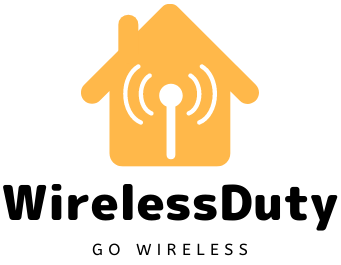How to Enhance Your Wireless & Digital Security?
Protecting your wireless security is as vital as protecting your digital security. If you are new to the term ‘wireless security,’ keep reading this article as you will get to know everything you need to ensure WiFi security and online safety.
WiFi security or wireless security is the process of protecting the connections and devices interlinked in a wireless environment. It includes your modem, router, computer, smartphone, and other devices in the ecosystem.
The article brings together tips that can help guard your wireless network and devices.
Why Do You Need to Protect Your Network?
An unprotected, password-free network can be accessible to anyone in proximity; therefore, protecting the networks using strong passwords is essential.

In addition, using an open network can be risky for organizations and users. An open, unprotected network enables cyber criminals to track your personal information, view your browsing history, and steal your online identities.
Let’s discuss some potential ways to ensure better security of network devices.
Change Default Password
When you get a WiFi network enabled, change the default password to a unique personalized one.
Default admin passwords aim for easy device setup and are easily available on the manufacturer’s website. So, change them instantly to secure the connection and devices.
Encrypt Your Network
Another potential method to protect the WiFi network is ensuring proper encryption protocols are in place.
Encryption helps encode data that only an authorized recipient can decode. Different encryption standards include WPA and WPA2.
Enable DNS Security
Domain Name System security is another potential method to protect your infrastructure from cyber attacks.
You can block several DNS requests to illegitimate websites or malicious domains to make your network more secure.
Are you wondering how DNS security helps, how to configure DNS protection, or why my macos dns not working? Read online guides to get detailed information on DNS.
Although wireless security is important, protecting your network only helps if you protect your online security from unauthorized access. Let’s now discuss what digital security is and how to enhance it.
What is Digital Security?
Digital security is crucial no matter what device and operating system you use. The more you practice good security, the better your chances of avoiding cyber threats. Data breaches have become more popular than ever, and nothing you can do to stop these breaches.

However, you can protect your private data, device, and identity. Yes, there are a few things you can do to protect your information from falling into the hands of cybercriminals. Even though these are simple steps, they can make a huge difference.
Install Antivirus Software
With a responsive antivirus application, it’s easier to be secure online. There are different types of antivirus programs, each with a unique intent.
Trojan horses, the most common viruses, steal your private information, while ransomware encrypts your files and asks for money to restore access.
A good antivirus application will protect your data and device against all these viruses, along with many other malware that are even more destructive.
Assign Unique Passwords
Setting up strong and unique passwords for your online accounts and important files is the key to staying safe online and offline.
One of the standard practices that hackers follow to steal your information is getting access to bulk username and password combinations and trying them across platforms randomly.
So, assigning unique passwords to all your accounts effectively keeps security threats at bay. Plus, use different email accounts for different purposes.
Enable Multi-Factor Authentication
Setting up multi-factor authentication or two-way verification can be time-consuming, but it adds a security layer to your online and offline information.
Once the two-factor authentication is in place, anyone with your username and password information can’t log in to your account.
To successfully log into your account, you would need the unique one-time password (OTP) that you receive on your registered phone number or email address each time you attempt to log in.
Connect Via A VPN
If you ever require connecting to the internet using unknown or public WiFi, such as while in the cafe or library, you must use a VPN.
The possibilities are that someone else on the network might be looking to steal your personal information without you even knowing.
A VPN encrypts your IP address and routes the traffic via a server owned and managed by the VPN provider. Using a VPN prevents third parties from peeping into your browsing history.
Clear Your Cache Regularly
Cache files make browsing faster and more convenient. The operating system you use auto-builds a cache whenever you visit a new site or app.
Since cache files keep building faster, they consume a lot of storage over time if you don’t delete them regularly.
Deleting cache and junk files from the computer won’t affect the performance, so remove them often, as they pose a security threat to your computer and stored data.
The above methods will help you enhance the security of your wireless networks and online accounts.
Further Read:
